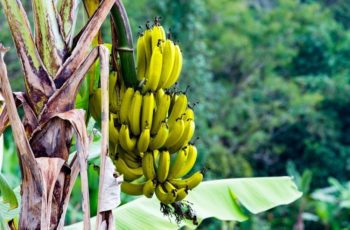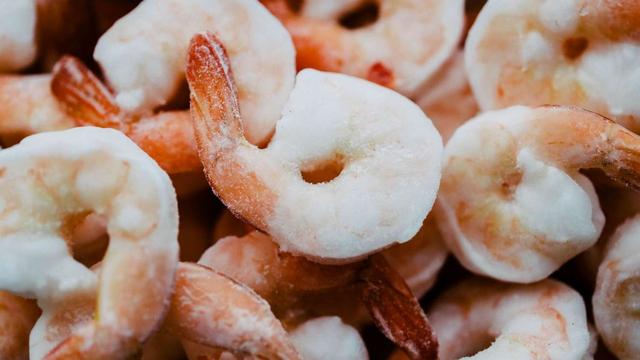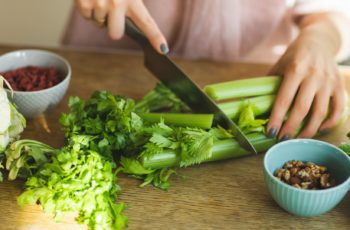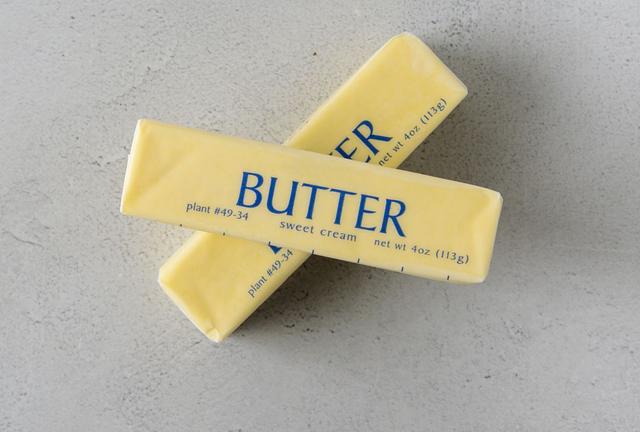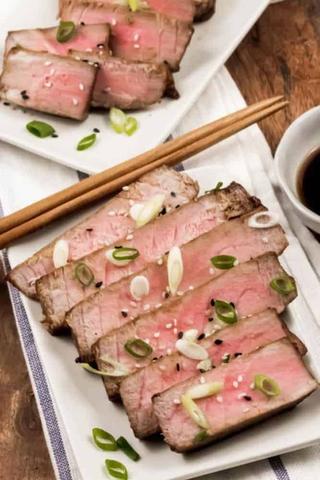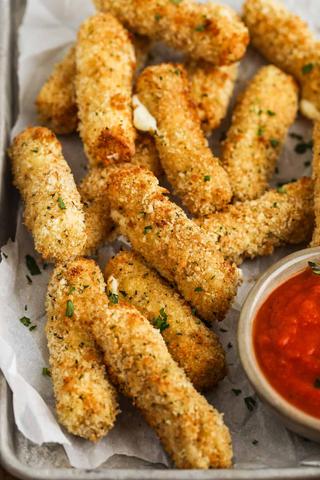
Duck often intimidates home cooks who are unfamiliar with this luxurious protein. Many wonder, “What does duck taste like?” and “Is it similar to chicken?” This comprehensive guide will explore the rich, complex world of duck meat to answer all these questions and more.
Exploring What Does Duck Taste Like?

From Pond to Plate: The Essence of Duck
Duck meat stands as a unique culinary experience that sets itself apart from other poultry options. Unlike its cousins chicken and turkey, duck offers a more sophisticated, nuanced flavor profile that has made it a staple in cuisines worldwide, from French confit to Chinese Peking duck.
Read more: What does lamb taste like? Discover 101 Complex Flavors
The Distinctive Taste of Duck Meat
What does duck meat taste like? The answer is more complex than one might expect. Duck meat presents a rich, robust flavor that’s notably different from other poultry. It offers a perfect balance of savory and subtle sweet notes, with an underlying earthy quality that makes it uniquely satisfying. The meat is inherently more flavorful than chicken or turkey, thanks to its higher fat content and different muscle composition.
The taste can be described as:
- Rich and full-bodied
- Savory with subtle sweet undertones
- Slightly gamey (especially in wild duck)
- Complex and intense
- More similar to red meat than typical poultry
Duck Breast: The Crown Jewel
What does duck breast taste like? Duck breast is often considered the prime cut, offering the perfect showcase of what makes duck special. The breast meat is remarkably tender and succulent, with a flavor that’s both rich and delicate. When properly prepared, duck breast presents a wonderful contrast between its crispy, golden-brown skin and the tender, pink meat beneath.
The breast meat is particularly prized for its:
- Buttery, smooth texture
- The rich, meaty flavor
- Excellent fat marbling
- Versatility in cooking methods
- Ability to pair with various sauces and seasonings
The Roasted Duck Experience
A common question among home cooks is “What does roasted duck taste like?” Roasting brings out the best in duck meat, creating a harmonious blend of flavors and textures. When roasted properly, the fat renders slowly, basting the meat naturally and creating a crispy, golden skin that’s simply irresistible.
The roasting process enhances:
- The natural sweetness of the meat
- The crispy texture of the skin
- The tenderness of the flesh
- The overall depth of flavor
- The succulent, juicy quality
Factors Influencing Duck’s Taste

Elements Shaping Duck Flavor: From Long Island (Pekin) Duck to Muscovy Duck
Duck Varieties and Their Unique Flavors
Different breeds of duck offer varying taste profiles:
- Long Island (Pekin) Duck:
- Mild, approachable flavor
- Perfect for beginners
- Excellent for roasting
- Versatile in various recipes
- Mulard Duck:
- Richer, more pronounced flavor
- Higher fat content
- Generous meat yield
- Popular for special occasions
- Muscovy Duck:
- Leaner meat
- More intense flavor
- Less fatty skin
- Popular in European cuisine
Wild vs. Farmed Duck
The environment and lifestyle of ducks significantly impact their taste.
Wild Duck:
- More complex, intense flavor
- Leaner meat from an active lifestyle
- Stronger muscle development
- Variable taste based on diet
- More pronounced gamey notes
Farmed Duck:
- Consistent flavor profile
- Higher fat content
- More tender meat
- Predictable cooking results
- Milder taste
The Art of Preparing Duck

The Duck Preparation Process
Cooking Methods and Their Impact on Taste
The cooking method chosen dramatically affects the final taste and texture of the duck:
- Roasting:
- Renders fat naturally
- Creates crispy skin
- Maintains moisture
- Develops deep flavor
- Perfect for whole birds
- Pan-Searing:
- Ideal for duck breast
- Creates perfect crispy skin
- Controls cooking temperature
- Great for medium-rare preparation
- Excellent for sauce pairing
- Braising:
- Tenderizes the meat
- Reduces gamey flavors
- Infuses with cooking liquids
- Perfect for tough cuts
- Creates rich sauce
Tips for Perfect Duck Preparation
To achieve the best taste from duck:
- Allow the meat to come to room temperature before cooking
- Score the skin to help fat render
- Start with a cold pan for breast
- Cook slowly to render fat properly
- Rest the meat before serving
Duck Eggs: A Culinary Treasure
What do duck eggs taste like? Duck eggs deserve their mention as they offer a unique culinary experience.
- Richer flavor than chicken eggs
- Larger, creamier yolks
- More protein and nutrients
- Excellent for baking
- Superior texture in custards
The taste can be described as:
- More robust than chicken eggs
- Rich and creamy
- Slightly gamey
- Perfect for savory dishes
- Excellent in baked goods
Pairing and Serving Duck Suggestions

Duck Pairing Ideas for Serving
Complementary Flavors
Duck pairs beautifully with:
- Fruit-based sauces (cherry, orange, plum)
- Robust herbs (thyme, rosemary, sage)
- Root vegetables
- Wild mushrooms
- Asian spices and seasonings
Wine Pairing
For the perfect duck dining experience, consider these wine pairings:
- Pinot Noir for roasted duck
- Syrah for grilled duck
- Gewürztraminer for Asian-style duck
- Burgundy for duck confit
- Champagne for duck liver pâté
Storage and Handling
To maintain optimal taste and texture:
- Store fresh duck at 40°F or below
- Freeze at 0°F for longer storage
- Thaw breasts overnight in the refrigerator
- Allow two days for whole duck thawing
- Use within 2-3 days when refrigerated
Health and Nutritional Aspects
While the duck is higher in fat than other poultry, it offers numerous nutritional benefits:
- Rich in protein
- High in iron
- Good source of selenium
- Contains beneficial fatty acids
- Provides important B vitamins
Conclusion
Duck meat offers a unique and satisfying culinary experience that sets it apart from other poultry. Whether trying duck breast for the first time or exploring different preparations of this versatile meat, understanding its distinctive taste and texture helps appreciate its special place in the culinary world. From the crispy skin of a perfectly roasted duck to the tender, pink meat of a duck breast, each preparation method brings out different aspects of this remarkable protein.
The world of duck cuisine is rich and varied, offering endless possibilities for culinary exploration. Whether drawn to classic French preparations, Asian-inspired dishes, or modern fusion cuisine, duck’s distinctive taste and texture make it a rewarding ingredient to master in any kitchen. With proper preparation and cooking techniques, duck can become a favorite addition to any culinary repertoire, perfect for both special occasions and elevated everyday meals.
Learn More About Grilling
If you want to learn more about grilling, check out these other helpful resources!

